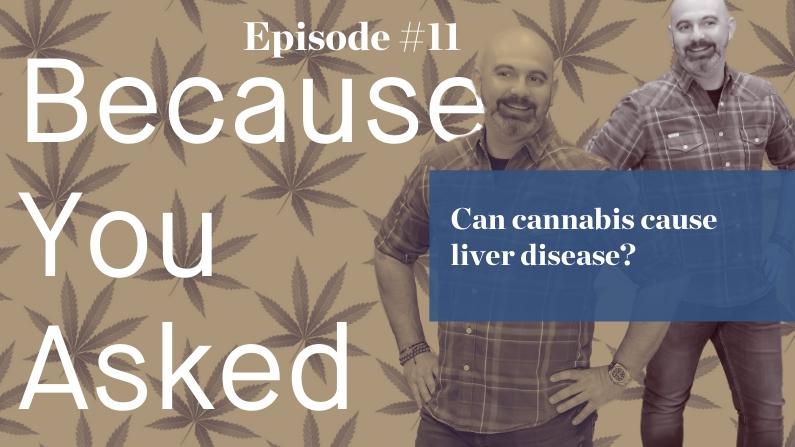Because you asked:
- Does using cannabis cause liver disease?
- In terms of drug interactions, what’s the importance of metabolic function and are there certain genetic markers that you should be aware of when you’re consuming cannabinoids in general?
- If you’re taking a large amount of a medication like Epidiolex, is it important to know if you’re a good metabolizer, genetically, so that it’s not a one-size-fits-all approach?
Key takeaways:
- CBD does not appear to cause liver disease and is found to reduce inflammation in the liver and prevent liver fibrosis.
- Our livers metabolize CBD and other chemicals, escorting them out of the body through particular pathways which can become blocked if there are competing medications trying to leave the system at the same time.
- When taking CBD and other cannabinoids, it’s important to look at all the medications you’re taking to avoid drug interactions.
- In order to safely take large doses of CBD, you need to work with a health professional to monitor liver your function
- Pharmacogenomics is proving how important DNA can be in helping identify and target medications that are beneficial to you specifically.
- Watch the video to learn more.
Cannabinoids and your liver.
Our livers are responsible for processing chemicals and sending them out of the body. How well the liver can metabolize different chemicals varies with genetics and with what different medications the liver is trying to metabolize at the same time.
CBD has been found to help calm inflammation and prevent fibrosis in the liver, but taking high doses of CBD, in something like Epidiolex, can be hard on the liver when combined with other medications like antiepileptics. If you’re taking high dosages of a CBD product, you need to look at what other medications you’re taking, and work with a health professional to monitor your liver enzymes.
Everything goes through the liver.
Dr. Spooner uses the analogy of exit doorways when explaining how these chemicals leave the body. Many chemicals need to use the same “exit,” like the cytochrome P450 family of enzymes. The doorway can get bottlenecked, or blocked with one chemical going out so another one can’t.
“These chemicals come into your body, they do their job, and now they need to be escorted out of the body because they don’t want to hang around forever… Your liver processes these [chemicals] and filters them out.”
Cannabinoids and other medications, like some antidepressants, antibiotics, and antifungals, use the same pathways to metabolize out of your system. When one medication is using the pathway, another can back up inside the body. Fortunately, this type of potential conflict can now be identified with DNA analysis, which can help target medications that work best for you specifically.
Pharmacogenomics, how a person’s genetics affect their response to drugs, is helping the medical field steer away from the “one-size-fits-all” approach to medication. The best example of pharmacogenomics is with antidepressants, which often work for one person and not well or not at all for another.
Endocanna CEO Len May and naturopathic specialist Dr. Chris Spooner discuss the liver, cannabis, and how important DNA is to our medical treatment and overall health.
Learn more about Dr. Chris Spooner here.
Learn more about CEO Len May here.
Visit our website to learn more about our breakthrough DNA test that can help match you with the right CBD or cannabis products to enhance your health and wellness.
Endocanna Health is a biotechnology company committed to helping consumers find the right cannabinoid products to enhance their health and wellness. Using our breakthrough DNA test, Endo·dna, we empower you to take control of your health with access to over 55 different health reports that include suggestions for the best CBD and cannabis products that match your unique genetic code. Visit us here to find out more!




0 Comments